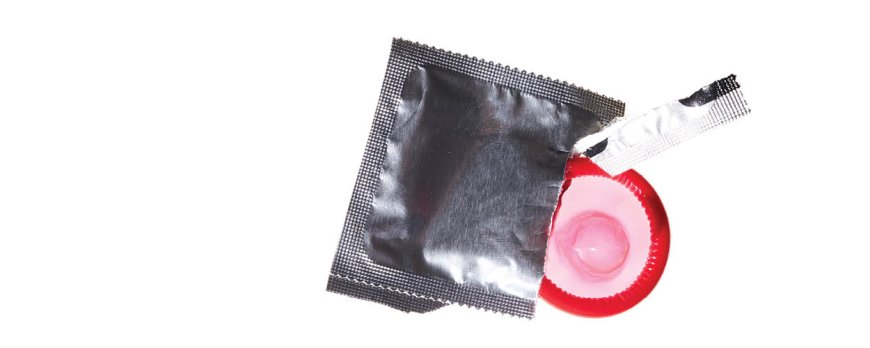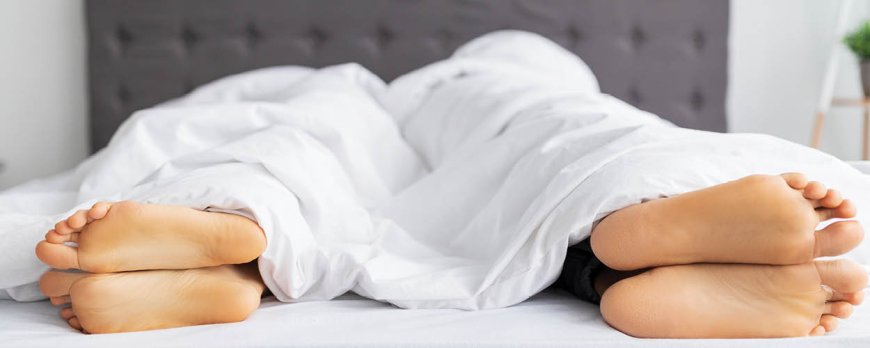What causes low libido in men?
Find out 'What causes low libido in men?' through our in-depth exploration into male health issues, contributing factors, and potential solutions.

What causes low libido in men?
Low libido in men can be caused by a variety of factors, both physical and psychological. Aging is a natural cause, as sex drive tends to decrease with age. Other physical factors like low testosterone levels, chronic diseases such as diabetes and heart disease, obesity, and certain medications can also contribute to low libido. Psychological factors like stress, anxiety, depression, and relationship problems can also have an impact. Sleep loss, alcohol and drug use, and hormonal problems such as an underactive thyroid or hyperprolactinaemia can affect sex drive as well. It's important to communicate with a doctor if low libido is causing distress. Treatment options may include hormone therapy, medication changes, lifestyle adjustments, psychosexual counseling, or addressing underlying health conditions.
Key Takeaways:
- Low libido in men can have both physical and psychological causes.
- Aging is a natural factor that can contribute to a decrease in sexual desire.
- Physical factors such as low testosterone levels, chronic diseases, obesity, and certain medications can impact male libido.
- Psychological factors like stress, anxiety, depression, and relationship problems can also affect sex drive.
- Lifestyle factors, including sleep loss and excessive alcohol or drug use, can contribute to low libido.
Age and low libido
As men age, it is common for their sex drive to diminish, resulting in low libido. This decrease in sexual desire can be attributed to various factors, including changes in hormone levels and overall health. While it is a natural part of the aging process, it can still be distressing for many men.
List of factors that may contribute to low libido in men:
- Changes in hormone levels, specifically a decline in testosterone production, can significantly affect sexual desire.
- Chronic diseases, such as diabetes and heart disease, can impact blood flow and nerve function, leading to a decrease in libido.
- Obesity can contribute to low libido by causing hormonal imbalances and reducing self-confidence.
- Certain medications, such as antidepressants and blood pressure medications, can have side effects that affect sexual desire.
- Psychological factors, including stress, anxiety, depression, and relationship problems, can also influence libido.
- Lifestyle factors like sleep deprivation, excessive alcohol consumption, and drug use can negatively impact sexual desire.
- Hormonal problems, such as an underactive thyroid or hyperprolactinaemia, can disrupt the hormonal balance and contribute to low libido.
If low libido is causing distress, it is important to communicate with a doctor. They can help identify the underlying causes and provide appropriate treatment options. Depending on the individual's circumstances, treatment options may include hormone therapy, medication changes, lifestyle adjustments, psychosexual counseling, or addressing underlying health conditions. Seeking medical help can greatly improve quality of life and sexual well-being for men experiencing low libido.
Physical factors and low libido
Low testosterone levels, chronic diseases, and obesity can all contribute to a decrease in male libido. Testosterone, a hormone primarily responsible for sexual desire in men, naturally declines with age. However, certain physical factors can further exacerbate this decline.
Chronic diseases such as diabetes and heart disease can negatively impact sexual function and libido. These conditions can affect blood flow, nerve function, and hormone production, all of which are crucial for a healthy sex drive. Additionally, obesity, characterized by excess body fat, can lead to hormonal imbalances and decreased testosterone levels, reducing sexual desire.
When it comes to medication, some drugs can have side effects that affect libido. Antidepressants, antihypertensives, and certain prostate medications are known to cause a decrease in sexual desire. If you're experiencing low libido and are taking any prescribed medications, it's essential to discuss this with your healthcare provider, who may be able to suggest alternative options.
The impact of physical factors on male libido:
- Low testosterone levels
- Chronic diseases such as diabetes and heart disease
- Obesity
- Certain medications
It's important to note that addressing physical factors contributing to low libido may involve a multidisciplinary approach. In addition to medical interventions such as hormone therapy or medication adjustments, lifestyle modifications like regular exercise, a balanced diet, and weight management can play a significant role in improving sexual desire. Seeking help from a healthcare provider can provide guidance on the best course of action for your specific situation.
In summary, low testosterone levels, chronic diseases, obesity, and certain medications can all contribute to low libido in men. It's crucial to address and understand the physical factors that may be influencing sexual desire. By consulting with a healthcare professional, individuals can explore treatment options, including hormone therapy, lifestyle adjustments, or addressing underlying health conditions, to improve their overall sexual well-being.

Medications and Low Libido
Some medications can cause decreased sexual desire in men, but changing medications or adjusting dosages may help improve libido. If you are experiencing a decrease in libido as a side effect of your medication, it is important to discuss this with your doctor. They can evaluate your medication regimen and explore alternative options that may have less impact on your sexual desire.
Certain medications, such as antidepressants, antihypertensives, and some hormone therapies, have been known to affect libido. These drugs can alter the balance of chemicals in the brain or impact hormone levels, leading to a decrease in sexual desire. However, it is crucial not to make any changes to your medication regimen without consulting with a healthcare professional.
Switching to a different medication within the same therapeutic class or adjusting the dosage may help alleviate the decrease in libido. Your doctor can evaluate the potential benefits and risks of any changes and work with you to find the best solution for your specific situation. It is important to remember that resolving medication-related issues with libido may require patience, as finding the optimal medication or dosage may involve a trial-and-error process.
If you are concerned about the impact of your medication on your libido, it is important to have an open and honest conversation with your healthcare provider. They can provide guidance and support in addressing this issue and help you find a solution that balances your overall health needs with your sexual well-being.
Psychological Factors and Low Libido
Psychological factors can have a significant impact on male libido, with stress, anxiety, depression, and relationship problems often leading to low sexual desire. The mind-body connection plays a crucial role in sexual health, and when psychological issues arise, they can affect a man's ability to feel desire and be sexually aroused.
Here are some key points to consider:
- Stress: High levels of stress can interfere with the production of hormones like testosterone, which is essential for a healthy sex drive. Stress can also lead to fatigue, lack of focus, and emotional strain, all of which can contribute to a lower libido.
- Anxiety and Depression: Anxiety can create a constant state of worry and unease, making it difficult to relax and enjoy sexual experiences. Depression, on the other hand, can cause a loss of interest in activities, including sex, due to feelings of sadness, low energy, and a lack of motivation.
- Relationship Problems: Difficulties in a relationship, such as conflicts, communication issues, or a lack of emotional connection, can impact sexual desire. Intimacy and emotional well-being are closely linked, and unresolved relationship issues can lead to a decline in libido.
Seeking Support and Solutions
If you're experiencing low libido due to psychological factors, it's important to reach out for support. Talking to a healthcare professional or a therapist can provide valuable insight and guidance on addressing these issues. They can help you develop coping strategies, communicate better with your partner, and work through any underlying emotional or psychological concerns that may be affecting your sex drive.
Here are a few possible solutions:
- Lifestyle Changes: Engaging in stress-reducing activities like exercise, meditation, or hobbies can help manage stress levels and improve overall well-being. Creating a healthy work-life balance and prioritizing self-care can also have a positive impact on sexual desire.
- Therapy and Counseling: Psychosexual counseling can be beneficial for individuals and couples experiencing sexual difficulties. It can help identify and address underlying psychological issues, improve communication and intimacy, and provide tools for enhancing sexual satisfaction.
- Medication and Treatment: In some cases, medication or hormonal therapy may be recommended to manage anxiety, depression, or hormonal imbalances that are impacting libido. It's important to consult with a healthcare professional to determine the most appropriate course of action.
Remember, low libido caused by psychological factors is a common issue and can be effectively addressed with the right support and treatment. Don't hesitate to seek help and take steps towards improving your sexual well-being.

Lifestyle factors and low libido
Poor sleep, excessive alcohol consumption, and drug use can all negatively affect male libido and sexual desire. Sleep plays a crucial role in regulating hormone levels, including testosterone, which is responsible for maintaining healthy libido. Sleep loss can disrupt this hormonal balance, leading to a decrease in sex drive. It is important for men to prioritize quality sleep to support optimal sexual health.
Alcohol and drug use can also have detrimental effects on male libido. Excessive alcohol consumption, especially on a regular basis, can impair sexual function and reduce sexual desire. Alcohol acts as a depressant on the central nervous system, which can hinder sexual arousal and performance. Additionally, certain drugs, both recreational and prescription, may have side effects that impact libido. It is important for men to be aware of how alcohol and drug use can affect their sexual health and make informed choices.
Adopting healthy lifestyle habits can help improve male libido. Getting sufficient sleep, limiting alcohol consumption, and avoiding drug use are key factors in maintaining a healthy sex drive. Engaging in regular physical exercise can also boost testosterone levels and enhance sexual desire. Additionally, managing stress through activities like meditation, yoga, or counseling can contribute to improved sexual health. It is important for men to make lifestyle adjustments that prioritize their overall well-being, as this can positively impact their libido.
Hormonal problems and low libido
Hormonal imbalances, like an underactive thyroid or hyperprolactinaemia, can disrupt male libido and lead to decreased sexual desire. These conditions can affect the production of hormones that play a crucial role in regulating sex drive. An underactive thyroid, for example, can result in low levels of thyroid hormones, which can reduce libido. Similarly, hyperprolactinaemia, a condition characterized by high levels of prolactin hormone, can interfere with the normal functioning of the reproductive system and dampen sexual desire.
It is important for individuals experiencing low libido to consult a healthcare professional who can conduct appropriate tests to identify any underlying hormonal issues. If an underactive thyroid or hyperprolactinaemia is diagnosed, treatment options may be available to address these conditions and help restore libido. Hormone replacement therapy, for instance, can be used to supplement thyroid hormones or regulate prolactin levels, which in turn can improve sexual desire.
Signs of hormonal problems
- Unexplained weight gain or weight loss
- Unusual fatigue or lack of energy
- Mood swings or irritability
- Difficulty concentrating
If you are experiencing any of these symptoms in addition to low libido, it is advisable to discuss them with your healthcare provider. They will be able to evaluate your overall health and determine if hormonal imbalances may be contributing to your diminished sex drive.
Remember, addressing hormonal problems is just one aspect of addressing low libido. It is also important to consider other factors like physical health, lifestyle choices, and psychological well-being. Taking a comprehensive approach to understanding and managing low libido can help individuals regain their sexual desire and overall quality of life.

Seeking Medical Help for Low Libido
If low libido is causing distress, it is important to communicate with a doctor who can help identify and address any underlying health conditions. Seeking medical help is crucial in understanding the factors contributing to low libido and finding appropriate solutions. Here are some key steps to take:
- Be open and honest: When discussing your concerns with a doctor, be open and honest about your symptoms, lifestyle, and any medications you are taking. This will help them gain a comprehensive understanding of your situation and guide them in providing the best possible care.
- Undergo a thorough examination: A doctor may perform a physical examination and order blood tests to check hormone levels, such as testosterone. Additionally, they may inquire about your medical history and ask questions about your mental health and relationships.
- Explore underlying health conditions: If an underlying health condition is contributing to low libido, it's crucial to address it. Whether it's treating a hormonal imbalance, managing a chronic disease, or making lifestyle adjustments, identifying and managing the root cause can help improve your sexual desire.
- Discuss treatment options: Depending on your specific circumstances, your doctor may recommend different treatment options. This could include hormone therapy to address imbalances, medication changes to minimize side effects, lifestyle adjustments like improving sleep quality and reducing alcohol and drug use, or psychosexual counseling to explore psychological factors.
- Follow up regularly: It's important to maintain open communication with your doctor and schedule regular follow-up appointments to monitor progress and make any necessary adjustments to your treatment plan. They can provide ongoing support and guidance as you navigate your journey to regain a healthy libido.
Conclusion
Low libido in men can be caused by a variety of factors, including physical, psychological, and hormonal influences. If low libido is causing distress, seeking medical help is essential. By communicating with a doctor, addressing underlying health conditions, and exploring treatment options, you can work towards improving your sexual desire and overall well-being.
Treatment Options for Low Libido
Treatment options for low libido in men may include hormone therapy, lifestyle adjustments, and psychosexual counseling to address the underlying causes. These approaches aim to improve sexual desire and function, ultimately enhancing overall quality of life.
Hormone Therapy
Hormone therapy involves the use of medications or supplements to restore hormonal balance in the body. Testosterone replacement therapy, for example, may be prescribed to men with low testosterone levels, a common cause of decreased libido. This treatment can help increase sexual desire and improve erectile function.
Lifestyle Adjustments
Making certain lifestyle adjustments can also positively impact libido. Engaging in regular exercise promotes better blood flow and energy levels, which can enhance sexual function. Achieving and maintaining a healthy weight has been shown to improve sexual desire as well. Additionally, reducing stress levels through relaxation techniques or counseling can help alleviate psychological factors contributing to low libido.
Psychosexual Counseling
Psychosexual counseling can be beneficial for individuals experiencing low libido due to psychological factors such as anxiety, depression, or relationship issues. A trained counselor or therapist can provide guidance and support, helping individuals explore and address emotional barriers that may be negatively impacting sexual desire. This form of therapy can also improve communication and intimacy within relationships.
It's important to note that treatment options for low libido should be tailored to the individual's specific needs and preferences. Consulting with a healthcare professional is crucial to ensure an accurate diagnosis and appropriate treatment plan. By addressing the underlying causes of low libido, individuals can regain sexual satisfaction and improve their overall well-being.
Conclusion
Low libido in men can stem from a variety of causes, both physical and psychological, but seeking medical help and exploring treatment options can help address these issues and improve male sexual desire.
Factors such as aging, low testosterone levels, chronic diseases like diabetes and heart disease, obesity, and certain medications can contribute to a decrease in libido. Psychological factors, including stress, anxiety, depression, and relationship problems, can also have an impact on male sexual desire. Lifestyle factors, such as sleep loss and excessive alcohol and drug use, as well as hormonal problems like an underactive thyroid or hyperprolactinaemia, can affect sex drive as well.
If low libido is causing distress, it is important to communicate with a doctor who can assess the underlying factors and recommend appropriate treatment options. These may include hormone therapy, medication changes, lifestyle adjustments, psychosexual counseling, or addressing any underlying health conditions. By addressing the root causes of low libido, men can regain their sexual desire and improve their overall quality of life.
Remember, it is not uncommon for men to experience fluctuations in libido, but if persistent or causing significant distress, seeking medical help is recommended. Don't hesitate to reach out and discuss any concerns you may have. Your doctor can guide you through the process of identifying and addressing the causes of low libido, allowing you to regain a healthy and fulfilling sex life.
FAQ
What causes low libido in men?
Low libido in men can be caused by a variety of factors, including aging, physical factors like low testosterone levels, chronic diseases, obesity, and certain medications, psychological factors like stress, anxiety, depression, and relationship problems, lifestyle factors like sleep loss and alcohol and drug use, and hormonal problems such as an underactive thyroid or hyperprolactinaemia.
How does aging affect male libido?
Aging is a natural cause of low libido in men. As men age, their sex drive tends to decrease, which can lead to a decrease in sexual desire.
What physical factors can contribute to low libido in men?
Physical factors such as low testosterone levels, chronic diseases like diabetes and heart disease, obesity, and certain medications can impact male libido and contribute to a decrease in sexual desire.
Can medications affect male libido?
Yes, certain medications can negatively affect male libido and contribute to a decrease in sexual desire. It may be worth discussing potential medication changes with a doctor if low libido is causing distress.
How do psychological factors affect male libido?
Psychological factors such as stress, anxiety, depression, and relationship problems can have a significant impact on male libido and contribute to a decrease in sexual desire.
Can lifestyle factors contribute to low libido in men?
Yes, lifestyle factors such as sleep loss, excessive alcohol and drug use, and unhealthy habits can contribute to low libido in men. Making lifestyle adjustments may help improve sexual desire.
How do hormonal problems affect male libido?
Hormonal problems, such as an underactive thyroid or hyperprolactinaemia, can affect male libido and contribute to a decrease in sexual desire. Addressing these hormonal issues may help improve libido.
When should I seek medical help for low libido?
If low libido is causing distress or significantly affecting your quality of life, it's important to communicate with a doctor. They can help identify any underlying health conditions and discuss potential treatment options.
What treatment options are available for low libido?
Treatment options for low libido in men may include hormone therapy, medication changes, lifestyle adjustments, psychosexual counseling, or addressing underlying health conditions. A doctor can help determine the most suitable treatment approach.


































































































































